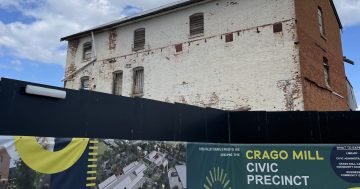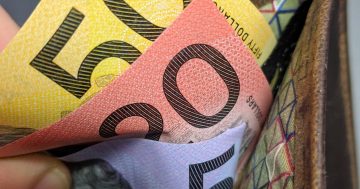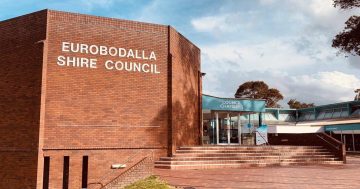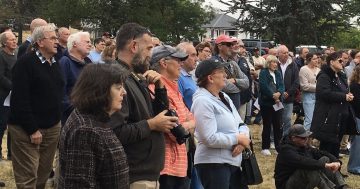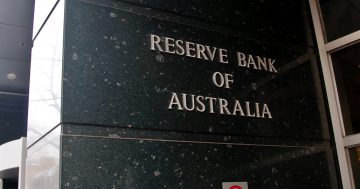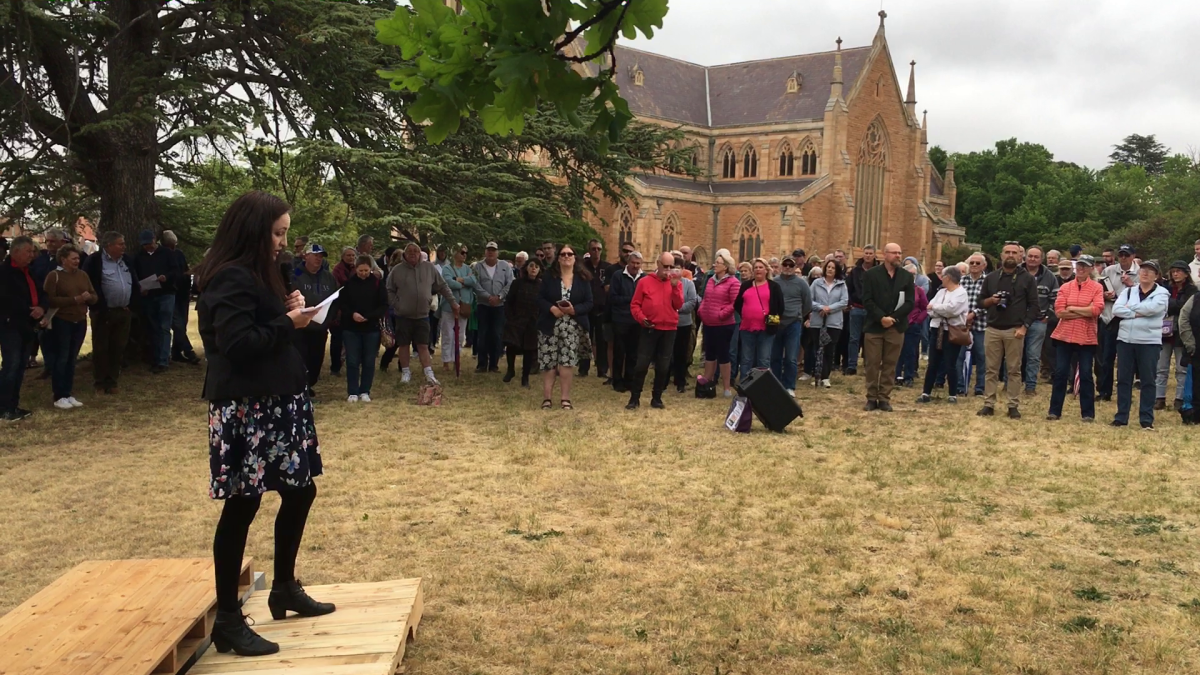
Ratepayers gathered in Goulburn on Saturday to protest Council’s proposed special rate variation. Photo: John Thistleton.
Goulburn ratepayer Chloe Hurley told hundreds of people at a protest rally on Saturday (4 November) that Goulburn Mulwaree Council’s proposed rate increase of more than 50 per cent is “crazy”.
A stay-at-home mother looking after two children aged one and three years old, Chloe and her husband pay annual rates of $2000 on a single income. Her objection comes as more groups in Goulburn join the backlash against the steep and sudden increase.
“We moved here two years ago as it was obviously a lovely town where we thought we could afford to buy a house,” she said. “However, our rates here are already among the highest in the state.”
Goulburn Mulwaree Council has proposed applying for a special rate variation of either 43.5 per cent next year and 2.5 per cent the following year, or 25.5 per cent next year and 20.5 per cent the following year.
“Under the first option we would be paying $906 extra per year, bringing our total rates to almost $3000 a year,” Chloe said. “The second option would see us paying $2767 a year in rates, and these will be permanent increases.”
Already financially stretched after the Reserve Bank increased their mortgage payments by $700 to fight inflation by curbing spending, the Hurleys had nothing left to spend. They pay $100 for fuel and $400 for food, not to mention sky-high utility bills.
“Rather than increasing the rates, the council should be looking at how they can run more efficiently,” she said, summing up what most of the 10 speakers on Saturday morning said.
Protest organiser, accountant and former Goulburn councillor Nina Dillon said she knew a lot of people were struggling and businesses had found people were not spending much these days after paying for the essentials.
The council has said without the increase in rate revenue it will have a deficit of more than $10 million every year. But speakers on Saturday said they had no money for an increase.
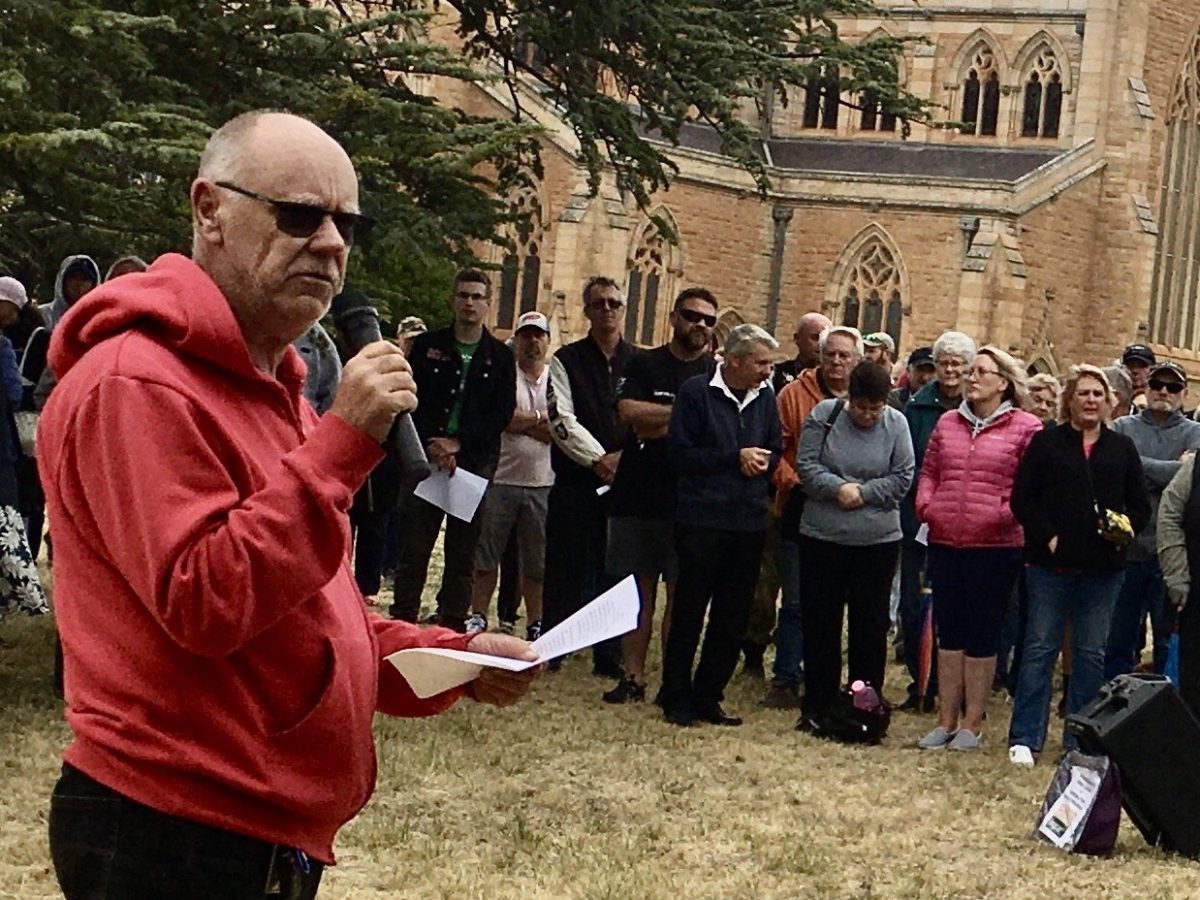
Retired paramedic Jim Searley, who has worked in Goulburn and throughout NSW, highlighted the high rates and additional fees for Local Land Services rural people faced. Photo: John Thistleton.
Activists from the Goulburn Group (TGG) shared the concern and said this is a huge increase to spring on ratepayers when many people are struggling with the cost of living.
TGG vice-president Mike Steketee said the group’s members find it difficult to understand how the situation has suddenly arisen to justify the hike.
“One of our members, Peter Fraser, a former businessman, has examined the council’s accounts and noted there was a net operating profit or surplus of $41 million in 2021-22, up from $35 million in 2021.”
He also pointed out that the council held $91 million in long-term deposits, earning interest and $17 million in cash.
“Even though the operating profit included capital grants of over $30 million, there was still a profit after that of approximately $10 million and there’s no reason to assume there will be zero grants in 2024,” he said.
“One of the problems is that the 2023 accounts have not been released, so we have no real idea of exactly what the financial situation is.”
At the protest on Saturday, explaining the impact of low market prices for livestock, cattle breeder and rural ratepayer Sue Arcus said: “My financial income for this year is now half of what it would be if the market price had not recently dropped.”
On the other hand, her costs including fuel, insurance, vet fees and livestock feed have skyrocketed.
“I can’t simply pass on business running costs to the consumer, I have to wear those costs unlike other businesses that will pass on this rate rise to you, the consumer,” Sue said.
“The proposed rate rise will cripple my business and my family, we will crumble and so will many, many other primary producers,” she said.
Her neighbour faced a hike of $20,000 if the rate rises proceeded. Sue said she would hold the council responsible if these increases caused suicides among rural ratepayers.
Educator for 40 years in Goulburn Steve Armstrong said he had received mixed messages from the council on whether the rate hike would be temporary or permanent.
“Most people would understand everything is increasing, and I understand the way inflation is at the moment that if there was an increase with our rates generally, it would be in keeping with inflation I suppose,” he said.
“But not a 52 per cent increase, I think this is a little bit outrageous.”








